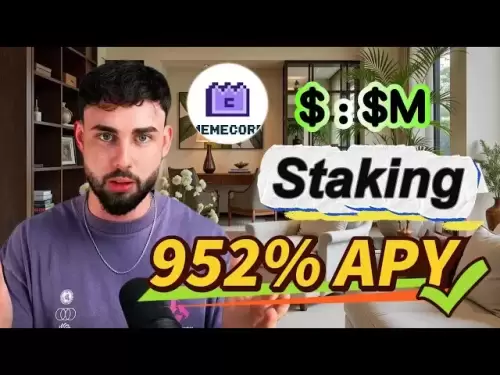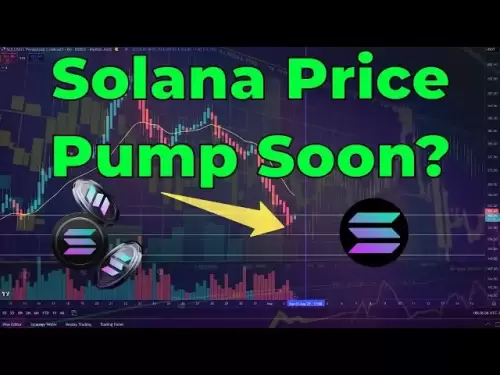-
 Bitcoin
Bitcoin $114400
1.32% -
 Ethereum
Ethereum $3499
2.20% -
 XRP
XRP $2.922
4.26% -
 Tether USDt
Tether USDt $0.0000
0.03% -
 BNB
BNB $752.6
1.53% -
 Solana
Solana $161.8
1.64% -
 USDC
USDC $0.9999
0.01% -
 TRON
TRON $0.3267
1.32% -
 Dogecoin
Dogecoin $0.1991
3.02% -
 Cardano
Cardano $0.7251
3.29% -
 Hyperliquid
Hyperliquid $38.32
3.36% -
 Stellar
Stellar $0.3972
7.58% -
 Sui
Sui $3.437
2.74% -
 Chainlink
Chainlink $16.29
3.65% -
 Bitcoin Cash
Bitcoin Cash $545.3
3.70% -
 Hedera
Hedera $0.2482
7.49% -
 Ethena USDe
Ethena USDe $1.001
0.03% -
 Avalanche
Avalanche $21.40
2.02% -
 Toncoin
Toncoin $3.579
1.56% -
 Litecoin
Litecoin $109.3
2.20% -
 UNUS SED LEO
UNUS SED LEO $8.951
-0.18% -
 Shiba Inu
Shiba Inu $0.00001220
2.75% -
 Polkadot
Polkadot $3.613
2.99% -
 Uniswap
Uniswap $9.173
3.78% -
 Monero
Monero $302.6
2.62% -
 Dai
Dai $0.0000
0.00% -
 Bitget Token
Bitget Token $4.320
1.52% -
 Pepe
Pepe $0.00001048
3.40% -
 Cronos
Cronos $0.1314
4.33% -
 Aave
Aave $259.4
3.54%
Which blockchain networks does Rabby Wallet support?
Rabby Wallet supports Ethereum, BSC, Polygon, Arbitrum, Optimism, and more, allowing users to manage diverse digital assets across multiple blockchain networks efficiently.
Apr 25, 2025 at 02:15 am
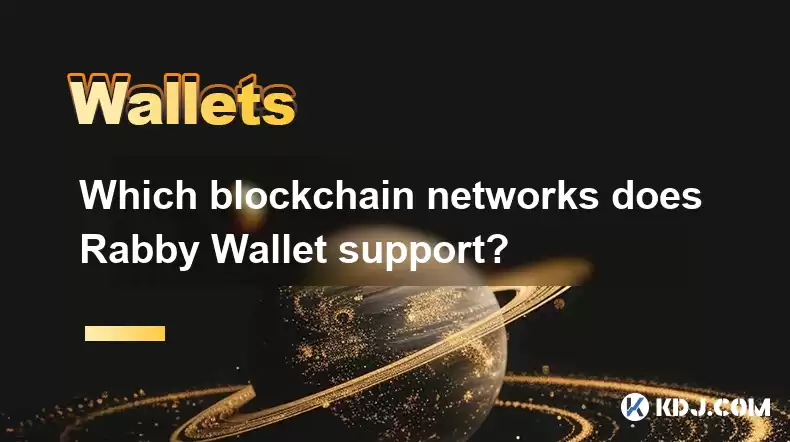
Rabby Wallet, a versatile and user-friendly cryptocurrency wallet, supports a variety of blockchain networks to cater to the diverse needs of its users. Understanding the range of supported networks is crucial for users who wish to manage their digital assets efficiently. In this article, we will explore the different blockchain networks that Rabby Wallet supports, providing detailed insights into each network's features and functionalities within the wallet.
Ethereum Network
Ethereum Network
Ethereum is one of the most widely supported networks by Rabby Wallet. As a leading blockchain platform, Ethereum enables the creation and execution of smart contracts and decentralized applications (DApps). Within Rabby Wallet, users can interact with the Ethereum network to manage their Ether (ETH) and various ERC-20 tokens.
- Sending and Receiving ETH and ERC-20 Tokens: Users can easily send and receive Ether and ERC-20 tokens by entering the recipient's address and the amount they wish to transfer. The wallet interface provides a user-friendly experience, ensuring that transactions are straightforward and secure.
- Interacting with DApps: Rabby Wallet allows users to connect to Ethereum-based DApps directly from the wallet. This feature enables users to participate in decentralized finance (DeFi) platforms, non-fungible token (NFT) marketplaces, and other Ethereum-based services without leaving the wallet environment.
- Gas Fee Management: The wallet provides tools to manage gas fees effectively, allowing users to set custom gas prices and speeds for their transactions. This feature is essential for optimizing transaction costs on the Ethereum network.
Binance Smart Chain (BSC)
Binance Smart Chain (BSC)
Binance Smart Chain (BSC) is another blockchain network supported by Rabby Wallet. Known for its fast transaction speeds and low fees, BSC is a popular choice for users looking to engage with DeFi and other decentralized applications.
- Managing BNB and BEP-20 Tokens: Users can send and receive Binance Coin (BNB) and BEP-20 tokens through Rabby Wallet. The process is similar to managing ETH and ERC-20 tokens, with a user-friendly interface that simplifies transactions.
- Accessing BSC DApps: Rabby Wallet integrates seamlessly with BSC-based DApps, allowing users to interact with various DeFi protocols, NFT platforms, and other decentralized services directly from the wallet.
- Transaction Speed and Fees: BSC is known for its fast transaction speeds and low fees. Rabby Wallet leverages these features to provide users with a smooth and cost-effective experience when using the BSC network.
Polygon (MATIC)
Polygon (MATIC)
Polygon, formerly known as Matic Network, is a layer-2 scaling solution for Ethereum that is supported by Rabby Wallet. Polygon aims to provide faster and cheaper transactions while maintaining compatibility with Ethereum's ecosystem.
- Handling MATIC and ERC-20 Tokens: Users can manage their MATIC tokens and other ERC-20 tokens on the Polygon network through Rabby Wallet. The wallet supports seamless transfers and interactions with Polygon-based assets.
- Engaging with Polygon DApps: Rabby Wallet enables users to connect to Polygon-based DApps, offering access to a wide range of decentralized services. This includes DeFi platforms, NFT marketplaces, and other applications built on the Polygon network.
- Scalability and Cost Efficiency: Polygon's focus on scalability and cost efficiency is reflected in Rabby Wallet's support for the network. Users can enjoy faster transaction times and lower fees compared to the Ethereum mainnet.
Arbitrum
Arbitrum
Arbitrum is a layer-2 scaling solution for Ethereum that is also supported by Rabby Wallet. Arbitrum aims to improve Ethereum's scalability and transaction speed without compromising on security.
- Managing ETH and ERC-20 Tokens on Arbitrum: Users can send and receive ETH and ERC-20 tokens on the Arbitrum network through Rabby Wallet. The wallet provides a user-friendly interface for managing these assets.
- Interacting with Arbitrum DApps: Rabby Wallet allows users to connect to Arbitrum-based DApps, enabling them to participate in various decentralized services. This includes DeFi platforms, NFT marketplaces, and other applications built on Arbitrum.
- Enhanced Scalability: Arbitrum's focus on scalability is leveraged by Rabby Wallet to provide users with a smooth and efficient experience when using the network. Transactions are faster and more cost-effective compared to the Ethereum mainnet.
Optimism
Optimism
Optimism is another layer-2 scaling solution for Ethereum supported by Rabby Wallet. Similar to Arbitrum, Optimism aims to enhance Ethereum's scalability and transaction speed.
- Handling ETH and ERC-20 Tokens on Optimism: Users can manage their ETH and ERC-20 tokens on the Optimism network through Rabby Wallet. The wallet supports seamless transfers and interactions with Optimism-based assets.
- Engaging with Optimism DApps: Rabby Wallet enables users to connect to Optimism-based DApps, providing access to a variety of decentralized services. This includes DeFi platforms, NFT marketplaces, and other applications built on Optimism.
- Improved Transaction Speed and Cost: Optimism's focus on improving transaction speed and cost is reflected in Rabby Wallet's support for the network. Users can enjoy faster and more cost-effective transactions compared to the Ethereum mainnet.
Additional Supported Networks
In addition to the networks mentioned above, Rabby Wallet supports several other blockchain networks, including:
- Avalanche (AVAX): Users can manage AVAX and other assets on the Avalanche network, known for its high throughput and low latency.
- Fantom (FTM): Rabby Wallet supports Fantom, a fast and scalable blockchain platform designed for DeFi applications.
- Celo (CELO): Users can interact with the Celo network, which focuses on mobile-first blockchain solutions and financial inclusion.
Each of these networks is integrated into Rabby Wallet to provide users with a comprehensive and versatile platform for managing their digital assets across various blockchain ecosystems.
Frequently Asked Questions
Q1: Can I use Rabby Wallet to swap tokens between different supported networks?
A1: Rabby Wallet does not currently offer built-in token swapping functionality between different blockchain networks. However, users can connect to decentralized exchanges (DEXs) supported by each network to swap tokens within the same network. For example, users can swap tokens on Ethereum using Uniswap or on Binance Smart Chain using PancakeSwap.
Q2: How secure is Rabby Wallet when using multiple blockchain networks?
A2: Rabby Wallet prioritizes security across all supported blockchain networks. It employs industry-standard encryption and security protocols to protect users' private keys and transactions. Additionally, the wallet supports hardware wallet integration for added security when managing assets on multiple networks.
Q3: Are there any fees associated with using Rabby Wallet on different blockchain networks?
A3: Rabby Wallet itself does not charge fees for using the wallet. However, users will incur network-specific fees when conducting transactions on each supported blockchain network. These fees, such as gas fees on Ethereum or transaction fees on BSC, are determined by the respective networks and can vary based on network congestion and other factors.
Q4: Can I stake my tokens on supported networks through Rabby Wallet?
A4: Rabby Wallet does not currently offer built-in staking functionality. However, users can connect to staking platforms or DApps on supported networks to stake their tokens. For example, users can stake ETH on Ethereum through Lido or stake BNB on BSC through Binance Staking, all accessible through Rabby Wallet's DApp integration.
Disclaimer:info@kdj.com
The information provided is not trading advice. kdj.com does not assume any responsibility for any investments made based on the information provided in this article. Cryptocurrencies are highly volatile and it is highly recommended that you invest with caution after thorough research!
If you believe that the content used on this website infringes your copyright, please contact us immediately (info@kdj.com) and we will delete it promptly.
- Cold Wallet vs. MetaMask: A Web3 Wallet Revolution?
- 2025-08-04 06:30:12
- Chainlink Price Prediction: Bearish Continuation or a Bullish Reversal?
- 2025-08-04 06:35:12
- Bitcoin Whale Alert: Navigating Liquidation Risks in a Volatile Market
- 2025-08-04 07:10:12
- BNB Price Under Pressure: Navigating the Bearish Trend and Market Sentiment
- 2025-08-04 07:15:12
- Bitcoin Price Wobbles: Options Analysis Points to Bullish Undercurrent Despite Dip
- 2025-08-04 04:30:12
- Ark Invest, Coinbase, and Bitcoin: Decoding the Crypto Investment Landscape in NYC
- 2025-08-04 04:30:12
Related knowledge

What is a watch-only wallet in Trust Wallet?
Aug 02,2025 at 03:36am
Understanding the Concept of a Watch-Only WalletA watch-only wallet in Trust Wallet allows users to monitor a cryptocurrency address without having ac...

How to fix a stuck pending transaction in Trust Wallet?
Aug 03,2025 at 06:14am
Understanding Why Transactions Get Stuck in Trust WalletWhen using Trust Wallet, users may occasionally encounter a pending transaction that appears t...

What is a multi-coin wallet in Trust Wallet?
Aug 03,2025 at 04:43am
Understanding Multi-Coin Wallets in Trust WalletA multi-coin wallet in Trust Wallet refers to a digital wallet that supports multiple cryptocurrencies...

How to switch between networks in Trust Wallet?
Aug 02,2025 at 12:36pm
Understanding Network Switching in Trust WalletSwitching between networks in Trust Wallet allows users to manage assets across different blockchains s...
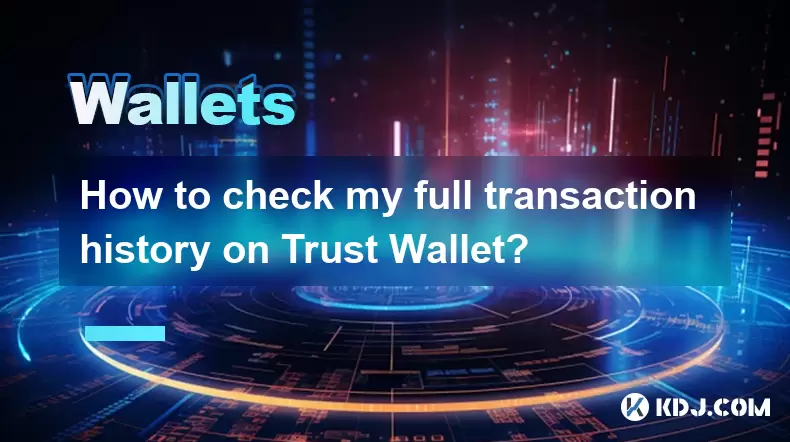
How to check my full transaction history on Trust Wallet?
Aug 02,2025 at 09:24am
Understanding Transaction History in Trust WalletTrust Wallet is a widely used non-custodial cryptocurrency wallet that supports a broad range of bloc...
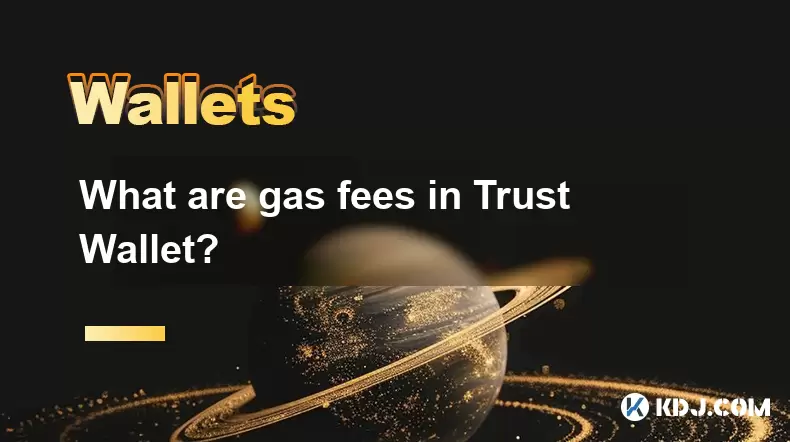
What are gas fees in Trust Wallet?
Aug 04,2025 at 06:14am
Understanding Gas Fees in Trust WalletGas fees in Trust Wallet refer to the transaction costs required to execute operations on a blockchain network. ...

What is a watch-only wallet in Trust Wallet?
Aug 02,2025 at 03:36am
Understanding the Concept of a Watch-Only WalletA watch-only wallet in Trust Wallet allows users to monitor a cryptocurrency address without having ac...

How to fix a stuck pending transaction in Trust Wallet?
Aug 03,2025 at 06:14am
Understanding Why Transactions Get Stuck in Trust WalletWhen using Trust Wallet, users may occasionally encounter a pending transaction that appears t...

What is a multi-coin wallet in Trust Wallet?
Aug 03,2025 at 04:43am
Understanding Multi-Coin Wallets in Trust WalletA multi-coin wallet in Trust Wallet refers to a digital wallet that supports multiple cryptocurrencies...

How to switch between networks in Trust Wallet?
Aug 02,2025 at 12:36pm
Understanding Network Switching in Trust WalletSwitching between networks in Trust Wallet allows users to manage assets across different blockchains s...

How to check my full transaction history on Trust Wallet?
Aug 02,2025 at 09:24am
Understanding Transaction History in Trust WalletTrust Wallet is a widely used non-custodial cryptocurrency wallet that supports a broad range of bloc...

What are gas fees in Trust Wallet?
Aug 04,2025 at 06:14am
Understanding Gas Fees in Trust WalletGas fees in Trust Wallet refer to the transaction costs required to execute operations on a blockchain network. ...
See all articles
























